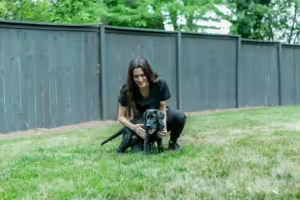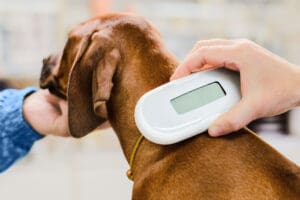The dog ate my ___________. Insert the blank…homework, Lego, a sock, underwear, or even a tampon (cringe!). When your pup swallows the unthinkable: here’s what to do if your dog eats a sock or another foreign object.
Stay Calm and Collected
First things first, don’t panic! It’s not uncommon for dogs to ingest things they shouldn’t, especially puppies. Take a deep breath, and let’s tackle this together.
Assess the Situation
Before you spring into action, try to assess the situation. Did you actually witness your dog eating the sock, or is it just missing? Look around for any remnants, torn pieces, or evidence that your furry friend had a snack.
Contact Your Vet
One of the most important steps is to call your veterinarian or an emergency animal hospital right away. Explain the situation, including your dog’s breed, size, and the size of the object ingested. They are experts in handling these situations and will guide you on the next steps.
Monitor Your Dog
While you’re waiting for professional guidance, keep an eye on your dog. Look for any signs of discomfort or distress, such as vomiting, diarrhea, abdominal pain, lethargy, loss of appetite, or difficulty defecating. It’s important information to share with your vet.
Avoid Inducing Vomiting
Don’t try to make your dog vomit without consulting your vet first. In some cases, inducing vomiting can do more harm than good, especially if there’s a blockage.
Follow Your Vet’s Advice
Your vet may recommend various actions, such as monitoring, x-rays, or even surgery to remove the foreign object if it’s causing a blockage. Listen carefully to their advice and follow it diligently.
Prevention is Key
To prevent future incidents, make sure to keep small items like socks, toys, and other non-food objects out of your dog’s reach. Supervise playtime to ensure they don’t accidentally ingest something.
Conclusion
Knowing what to do in such a situation can make all the difference. Stay calm, contact your vet, and follow their guidance. Remember, your veterinarian is your best ally in ensuring your furry friend’s health and safety.
We hope this friendly guide has helped ease your worries and provided you with the knowledge to handle the unexpected with confidence. Here’s to many more happy and healthy moments with your beloved four-legged companion!




